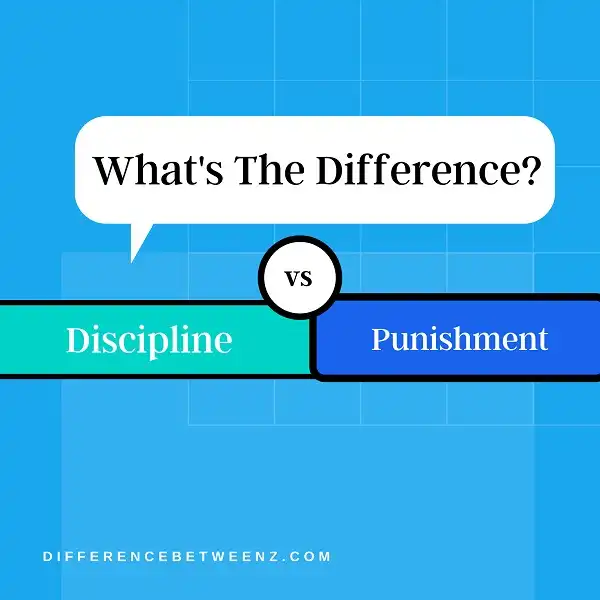It is common for parents to interchange the words “discipline” and “punishment.” While the two concepts are related, they are not one and the same. In order to effectively discipline your child, it is important to understand the difference between discipline and punishment. This article will explore the differences between discipline and punishment, and provide tips on how to effectively Discipline your child.
What is Discipline?
Discipline is a concept that has been debated by scholars for centuries. While some may view discipline as a form of punishment, others see it as an essential tool for personal growth and development. At its core, discipline is the ability to control one’s thoughts and actions in order to achieve a specific goal or outcome. This requires self-awareness, determination, and motivation, among other qualities. Discipline can promote positive behaviors, such as focusing on one’s studies or remaining committed to physical fitness. It can also help to address harmful behaviors, such as addiction or eating disorders. Ultimately, those who understand and embrace the concept of discipline are better equipped to succeed in all aspects of life.
What is Punishment?
Punishment is the imposition of an undesirable or unpleasant outcome upon a person in response to a behavior that is deemed unacceptable. The purpose of punishment is to deter future bad behavior. Punishment may take the form of physical pain, such as spanking, or it may be something that the individual finds unpleasant, such as losing privileges. There are different schools of thought on punishment, but the two main theories are deterrence and retribution. The theory of deterrence holds that the threat of punishment will dissuade people from engaging in bad behavior. The theory of retribution suggests that criminals deserve to be punished because their actions have caused harm to others. Punishment is a complex issue, and there is much debate over what forms of punishment are most effective. Some argue that Punishment can be used as a tool for rehabilitation, while others believe that it should be used only as a last resort.
Difference between Discipline and Punishment
Discipline and punishment are two words that are often used interchangeably, but they actually have very different meanings. Discipline is a proactive process that helps children learn self-control and appropriate behavior. It involves setting clear expectations and consistently reinforcing positive behavior. Punishment, on the other hand, is a reactive process that is used after a child has exhibited negative behavior. It usually involves some form of negative reinforcement, such as scolding or time-out. Both discipline and punishment can be effective in moderating children’s behavior, but Discipline is generally more successful in promoting long-term compliance.
Conclusion
It is important to understand the difference between discipline and punishment when it comes to raising children. Disciplining a child with love, understanding, and positive reinforcement will help them learn right from wrong and develop into responsible adults. Punishing a child through fear or violence will only create resentment and further behavioral problems.


